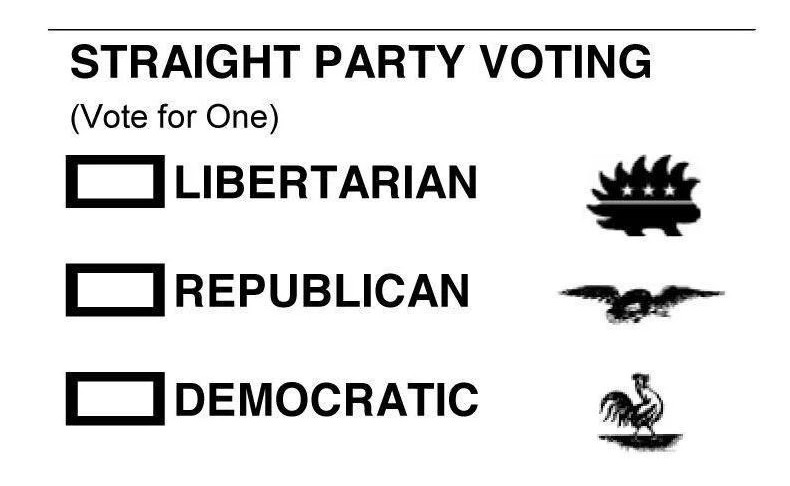The Race for Governor
With ten Republican candidates in the race, no candidate was able to get over 50 percent of the vote in the June 26 primary, so the top two candidates earned a spot in the runoff primary held on August 28. Kevin Stitt won the runoff with nearly 55% of the vote over Mick Cornett, the former mayor of Oklahoma City. Kevin Stitt, 45, is new to the political scene. He ran as a businessman and a political outsider. Stitt received an accounting degree from Oklahoma State University in 1996 and after graduation worked in the mortgage loan industry. He started Gateway Mortgage Group in 2000 “with only $1,000 and a computer.” Today, Gateway employs over 1,100 people, has 145 offices nationwide, is licensed in 40 states, serves 100,000 customers, and originated more than $6 billion in mortgages in 2017.
Since only two candidates filed for the Democrat nomination, the nomination was secured in the June 26 primary election. Former Oklahoma Attorney General Drew Edmondson ran for governor in 2010 instead of running for reelection to a fifth term, but lost in the Democrat Primary to Lt. Gov. Jari Askins who went on to lose to Mary Fallin. Edmondson, 71, drew attention in 2016 as the spokesman for the successful effort which defeated State Question 777, the so-called Right to Farm measure. The Edmondson name has been well known in Oklahoma politics. His father, Ed Edmondson, served in the U.S. House of Representatives. His uncle, J. Howard Edmondson, served as governor and then as U.S. Senator. Edmondson was the more moderate of the two candidates seeking the nomination. He was challenged for the Democrat nomination by former state Senator Connie Johnson (D-Forest Park). As most expected, Edmondson finished first with 61% of the vote.
With the return of the Libertarian Party in 2016 as a recognized political party in the state, three candidates filed for the party nomination. The Libertarian Party lost their status as a recognized party after their candidate in the 2000 presidential election, Harry Browne, received less than the 5 percent threshold. In order to maintain ballot status, a recognized party must now poll at least 2.5 percent of the vote for their nominee for president in the presidential election years, or their candidate for governor in gubernatorial election years. Their 2016 presidential candidate, Gary Johnson, received 5.75 percent, which secured the party a place on the ballot for 2018. If their nominee does not earn at least 2.5 percent of the vote in the 2018 race, they would again lose ballot status as a party. So the pressure is on their nominee to secure enough votes to keep the party on the ballot.
The Libertarian nominee was not determined until the runoff primary. Chris Powell won the nomination with 59% of the vote over Rex Lawhorn, who had been involved in state and federal levels of politics as an activist. Chris Powell, 46, is an evidence specialist for the Oklahoma City police department. He ran for Oklahoma County Clerk in 2016 under the Libertarian Party banner and received over 89,000 votes, which is more votes than the Libertarian Party presidential candidate received in the county. He has been active in the state party since 2000 and has served as chairman and vice chairman.
There are major issue differences among the candidates of the three parties. Stitt said he was opposed to the massive tax increases, HB1010xx, which was passed by the Legislature and signed by Gov. Mary Fallin this year. He said that with the turnaround of the economy the tax hikes were not needed. Stitt also believes there are reforms that should be instituted to prevent the waste of tax dollars. Edmondson supported the tax package and believes more tax increases are needed. Both Stitt and Powell favor consumption taxes rather than taxes on income.
The abortion issue also separates the candidates. In its candidate survey, Oklahomans for Life asked, “Upon reversal of the U.S. Supreme Court’s Roe v. Wade decision, will you vote for a law that will protect the lives of unborn children and prohibit abortion except to prevent the life of the mother?” Stitt said he would support the legislation. Edmondson refused to respond to the Oklahomans for Life survey. While he as avoided publically making a statement on the issue, his campaign has indicated that he is “pro choice” and is opposed to legislation which would interfere with a woman’s decision. Powell has only said that he believes the abortion issue should be left to individual states to decide.
Gov. Fallin vetoed the Constitutional Carry of Firearms bill, Senate Bill 1212, which was approved by the Legislature this year. This measure would have allowed any person at least 21 years of age, or a person who is at least 18 years of age and in the military, to carry a firearm concealed or unconcealed if the person is not otherwise disqualified from the possession or purchase of a firearm. Currently training and a permit are required to carry a firearm. No other Constitutional right requires people to get training and be licensed in order to exercise that right. Oklahoma would have been the 14th state to enact Constitutional Carry legislation. Stitt says he would sign such legislation. Edmondson supports the current restrictions. Powell was critical of Gov. Fallin’s veto: “with the veto Gov. Fallin demonstrated that she views the 2nd Amendment as a grant of privilege to be restricted as the state chooses.”
While he was Oklahoma Attorney General, Edmondson filed an amici curiae brief in support of a New Jersey case that sought to require the Boy Scouts to accept gay scout leaders. The suit, filed by James Dale and the ACLU in 2000, called for Dale be reinstated as a scoutmaster after he had been dismissed once his sexual orientation became known to them. The Supreme Court decided against Edmondson’s position, ruling that the Boys Scouts of America had the right to set the criteria for leadership within their organization. Edmondson said that he filed the brief in the New Jersey case in support of states’ rights, but he has not favored “states’ rights” by advocating the reversal of Roe v. Wade when it comes to the abortion issue, which leaves one to question his sincerity on that position.
In 2005, an “End-of-Life Health Care” task force, appointed by then-Attorney General Drew Edmondson, reveals a dark side of the 2018 Democratic Party candidate for governor – a side that in the words of Oklahomans for Life, seemed “more concerned with facilitating accelerated death than with improving end-of-life health care.”
A cursory look at the report reveals a definite bias in favor of death over life by Edmondson’s Task Force. On page 19 of the report, the Task Force (TF) said, “In our culture we praise those who are seen to ‘fight’ death rather accept it peacefully. Thus, language and social norms have to be modified to help us accept the goal of comfortable, peaceful death.”
According to Oklahomans for Life (OFL) the TF report actually objects to the “focus of nursing facility care under federal regulation” being “reaching or maintaining the highest practicable level of functioning” on the grounds that improving functioning “can be interpreted to be in conflict with care at the end of life when the patient or surrogate wishes to withhold or withdraw life-sustaining medical treatment.” The report suggests that some nurses just need to be re-educated to “realize their important role in ensuring the residents can have a good death as well as a good life.”
When many hear such things, they may mistakenly believe that “life-sustaining medical treatment” is some heroic measure with tubes keeping a person alive in a vegetative state. In reality, the TF favors denying life-sustaining treatment that would include fluids and food. The TF laments that Oklahoma law “regarding artificial nutrition and hydration is so restrictive.”
However, as OFL noted, “The foods and fluids ingested by a person who receives his sustenance by tube are no more ‘artificial’ than the food and fluids the rest of us ingest. The food can simply be prepared in a blender or taken from a can and introduced into the tube with a syringe by hand. No machines. No electricity ... Food is not medicine.”
“This bias against providing food and water to incapacitated persons shows up repeatedly in the report,” OFL said in its release.
OFL cited a poll which found that 80 percent of likely voters say that a disabled person who is not terminally ill or in a coma, and not being kept alive by life support, should not, in the absence of a written directive to the contrary be denied food and water.
“We should clearly separate food and water ... from life-support provided by machines,” the OFL release asserted.
Amazingly, the Edmondson-created Task Force used the expression “end of life” not so much as a period of time, but as an objective to be sought, OFL argued.
Before Oklahomans mark their ballots for Edmondson, they should consider the anti-life philosophy found in this Task Force report. This is the kind of attorney general we had for 16 years, when Drew Edmondson held that office. Is this the philosophy we want in the next governor of Oklahoma?










Latest Commentary
Saturday 31st of January 2026
Saturday 31st of January 2026
Saturday 31st of January 2026
Saturday 31st of January 2026
Saturday 31st of January 2026
Saturday 31st of January 2026
Saturday 31st of January 2026
Saturday 31st of January 2026
Saturday 31st of January 2026
Saturday 31st of January 2026
Saturday 31st of January 2026
Saturday 31st of January 2026
Saturday 31st of January 2026